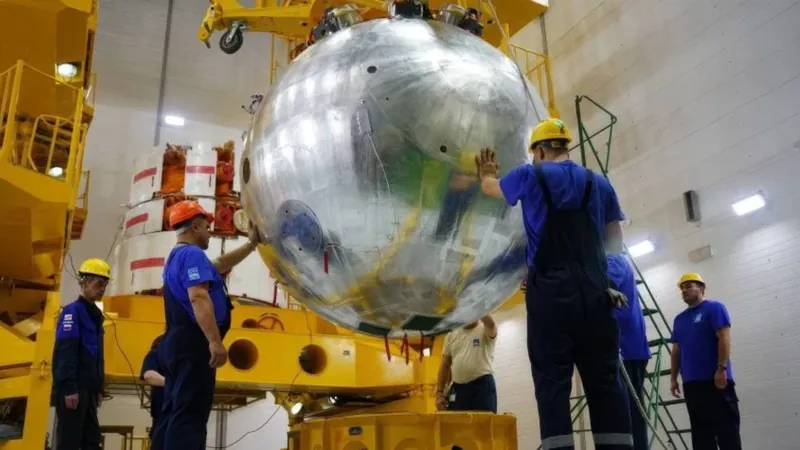
Brace Yourself: Earth Could Record Its Shortest Day Ever!
2025-06-21
Author: Sophie
An Unprecedented Twist in Earth's Rotation
Hold onto your calendars! Earth is on the brink of setting a record for its fastest rotation since the dawn of modern tracking in 1973. Since 2020, the planet has been spinning at lightning speed, resulting in increasingly shorter days. The shortest recorded day as of now was on July 5 last year, and experts predict we could come perilously close to that record again on July 9, July 22, and August 5 this year, according to Timeanddate.com.
What’s Behind This Acceleration?
The reasons for this acceleration remain a scientific mystery. While various theories abound, leading candidates include shifts in Earth's core and mantle dynamics, the redistribution of mass due to melting ice sheets, and changes in ocean currents and atmospheric movements. These factors may shave milliseconds off our daily rotation. Additionally, a phenomenon known as the 'Chandler wobble'—which involves the movement of Earth's geographical poles—might also be at play.
Could Negative Leap Seconds Become a Reality?
Historically, leap seconds have been added to reconcile atomic time with Earth’s spin. But with our planet rotating faster than ever, the necessity for leap seconds is being questioned, causing discussions around the prospect of 'negative leap seconds'—or removing a second altogether. The International Earth Rotation and Reference Systems Service (IERS) confirmed that no leap second will be added in 2025 after the last positive leap second was introduced back in December 2016. Scientists are unsure if this rapid spinning is just a fleeting pattern before the expected slowdown of Earth's rotation.
Why This Matters More Than You Think!
You might think this shift in time is just another quirky fact, but it carries significant implications. A faster-spinning Earth means shorter days, which is crucial for maintaining global time accuracy. Synchronizing Earth time with atomic time is vital for GPS functionality, satellite navigation, and even financial systems that depend on precise timestamps. As our world becomes increasingly reliant on technology, staying in harmony with Earth's unusual pace is more critical than ever.
Stay Tuned for Astronomical Updates!
As we continue to observe these extraordinary changes in Earth's rotation, you won't want to miss any updates. Keep your eyes on the sky and brace yourself for a timekeeping challenge like no other!









 Brasil (PT)
Brasil (PT)
 Canada (EN)
Canada (EN)
 Chile (ES)
Chile (ES)
 Česko (CS)
Česko (CS)
 대한민국 (KO)
대한민국 (KO)
 España (ES)
España (ES)
 France (FR)
France (FR)
 Hong Kong (EN)
Hong Kong (EN)
 Italia (IT)
Italia (IT)
 日本 (JA)
日本 (JA)
 Magyarország (HU)
Magyarország (HU)
 Norge (NO)
Norge (NO)
 Polska (PL)
Polska (PL)
 Schweiz (DE)
Schweiz (DE)
 Singapore (EN)
Singapore (EN)
 Sverige (SV)
Sverige (SV)
 Suomi (FI)
Suomi (FI)
 Türkiye (TR)
Türkiye (TR)
 الإمارات العربية المتحدة (AR)
الإمارات العربية المتحدة (AR)